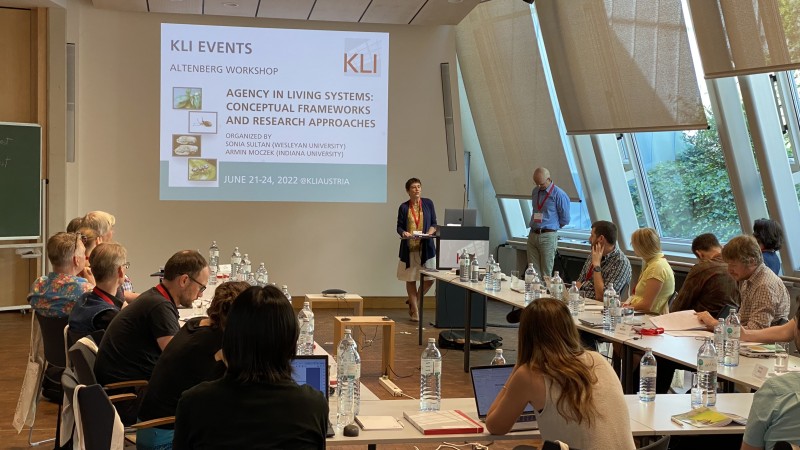News Details

Prevailing scientific approaches study organisms largely as passive objects, predetermined in development by their genetic makeup, and in evolution by an external selective environment. Alternatively, organisms may be investigated as potential agents of adaptive phenotypes and evolutionary innovation by virtue of (previously evolved) repertoires of regulatory, developmental and behavioral response.
The 39th Altenberg Workshop "Agency in Living Systems: Conceptual Frameworks and Research Approaches," co-organized by Sonia Sultan and Armin Moczek as part of the Agency in Living Systems project, convened in person for 3.5 days to discuss questions such as "Can biological phenomena such as flexible regulatory pathways, individual plasticity, and formative tissue interactions be understood as sources of organismic agency?" "How can we rigorously define this property, and how can it inform a robust scientific theory?" "What range of biological mechanisms comprise relevant research foci, and what changes to experimental approaches are suggested by an agency view?"
A shift in scientific emphasis to these complex, indeterminate response properties promises a more nuanced and complete understanding of biological systems than prevailing gene-based approaches. An agency focus also promises new avenues for investigating ecological resilience in the face of current environmental challenges on the one hand, and understanding and preventing human disease phenotypes, on the other. Sessions in the meeting were organized into the following themes: "What is Biological Agency?", "Plasticity, Process and Agency", "Agential Mechanisms in Developmental Evolution", "Dimensions of Organismic Agency", and "Agency and evolvability."
Outcomes of the workshop will include identifying key strengths and weaknesses of a biological agency approach; formulating a broader research agenda for agency investigations; strengthening the conceptual framework for a science of agency, and building a research community joined by this focus. The primary output will be a dedicated special journal issue in either Evolution & Development or Journal of Experimental Zoology, both of which have previously expressed interest.
Photos from the workshop can be found here. #BioAgency

photo of participants

